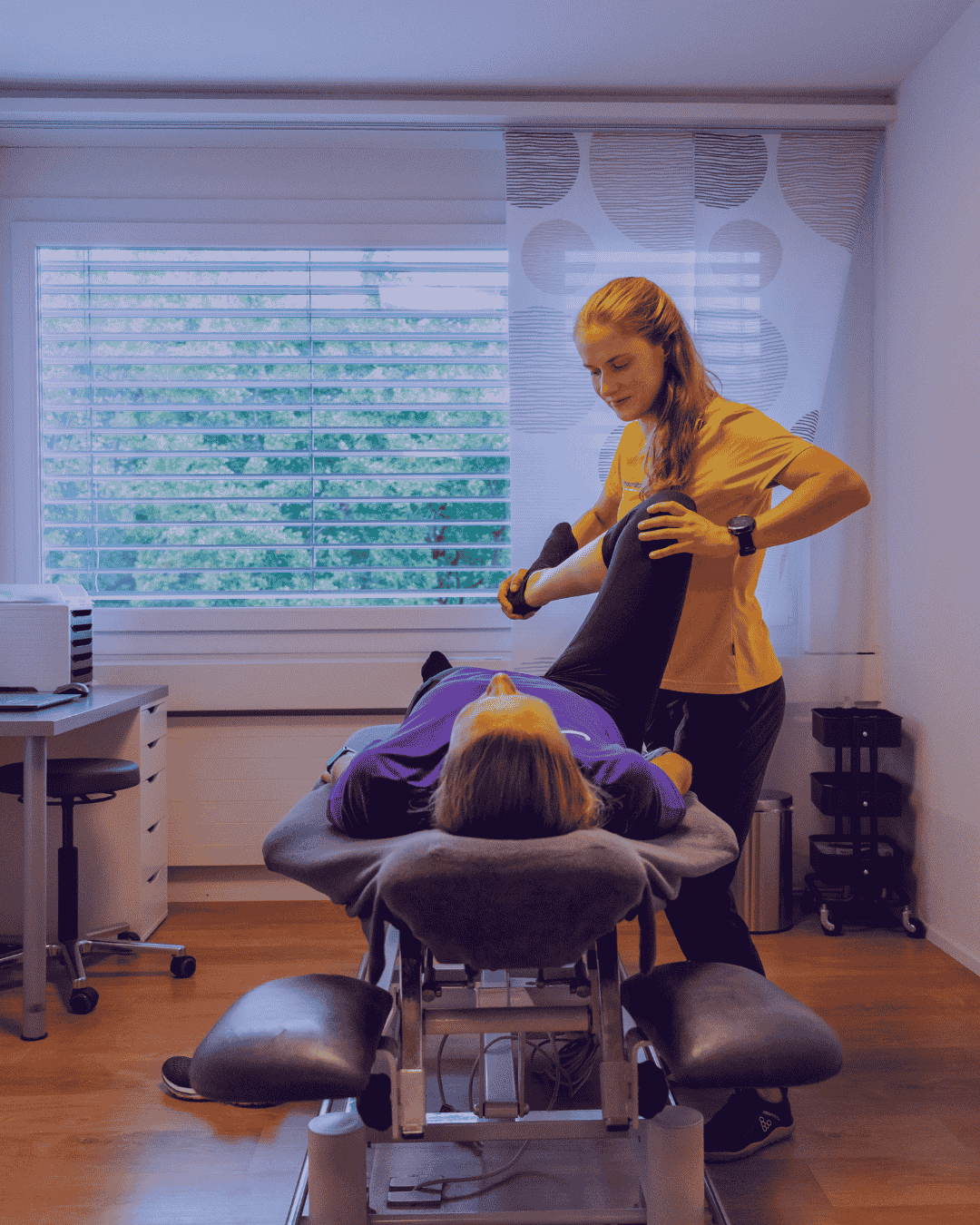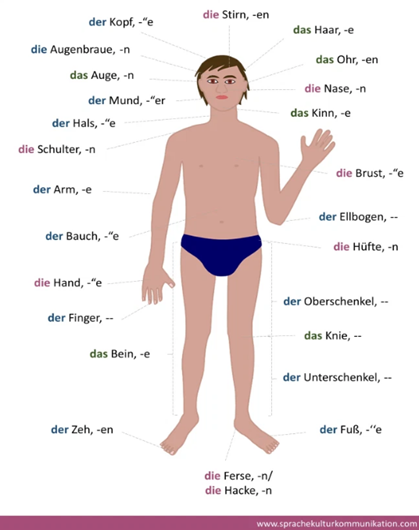Medical German: Essential phrases for healthcare professionals in Switzerland
This guide provides essential Medical German phrases for healthcare professionals in Switzerland, including small talk, anamnesis questions, treatment instructions, and useful vocabulary for the treatment and training room.

Working in the German-speaking part of Switzerland can be an exciting step in your career, but the language can be challenging at first. While Swiss-German (Schweizerdeutsch) is commonly spoken, every Swiss person also speaks High German (Hochdeutsch).
At the start of a conversation, it’s perfectly okay to ask patients to switch to High German.
A simple sentence that always works:
Ich arbeite noch nicht so lange in der Schweiz. Können Sie bitte Hochdeutsch sprechen?
I haven’t been working in Switzerland for very long. Could you please speak High German?
This guide provides essential small talk phrases, anamnesis questions, treatment instructions, and vocabulary to help you communicate confidently from day one.
1. Small talk to put patients at ease
At the start of most treatments, small talk helps build trust and creates a comfortable atmosphere. Here are common and useful phrases:
- Beautiful weather outside, isn’t it?
Schönes Wetter draußen, nicht wahr? - Were you able to find the practice?
Sind Sie gut in der Praxis angekommen? - How was your weekend?
Wie war Ihr Wochenende? - How are your children / your husband / your wife / your dog?
Wie geht es Ihren Kindern / Ihrem Mann / Ihrer Frau / Ihrem Hund?
2. Medical history (anamnesis) questions
These are the questions you’ll ask most frequently when getting to know your patient’s condition:
- What are your symptoms?
Was sind Ihre Beschwerden? - How did the complaints start?
Wie sind Ihre Beschwerden entstanden? - When did the complaints start?
Wann sind Ihre Beschwerden entstanden? - How are the symptoms progressing?
Wie ist der Verlauf der Beschwerden? - Do the symptoms affect your daily activities?
Machen Sie all Ihre täglichen Aktivitäten wegen der Beschwerden? - Which daily activities are difficult for you?
Mit welchen Aktivitäten haben Sie momentan Probleme? - Do you have a profession? What exactly do you do?
Haben Sie derzeit einen Job? Was für eine Arbeit machen Sie genau? - Do you have hobbies or play sports?
Haben Sie Hobbys und machen Sie Sport? - Are you in good health apart from your current complaints?
Sind Sie neben Ihren Beschwerden gesund? - Are you currently taking any medication? If yes, which ones?
Nehmen Sie derzeit Medikamente ein und wenn ja, welche? - What do you expect from me?
Was erwarten Sie von mir?
3. Body parts: singular and plural
In German, all plural forms use the article DIE, regardless of the singular article. Examples:
- Der Kopf → Die Köpfe
- Das Knie → Die Knie
- Das Auge → Die Augen
- Der Mund → Die Münder
This is especially helpful during movement instructions or anatomical explanations.

4. Useful phrases for during treatment
The list of words and expressions in this blog is only a small part of what we have for you. At PhysioMatch, we offer an extensive collection of Medical German phrases, specifically created for physiotherapists and healthcare professionals who want to work in Switzerland.
Are you going to Switzerland with us soon, or considering taking the step?
Then we are happy to share the full list with you.
Would you like to know how we can help you land your dream job in Switzerland?
Feel free to contact us, we’re here to support you every step of the way on your Swiss adventure.
Final tips for working in Switzerland
- Don’t worry if Swiss-German feels overwhelming at first — everyone understands High German.
- Patients appreciate clear communication and patience.
- Most people are very willing to help you learn.
- Keep a small cheat sheet with you in the first few weeks.
- The more you talk, the faster your confidence grows.
Would you like a personal conversation?
Emigrating isn't something you do every day, thankfully. We understand there's a lot to consider. Register now and explore your options in Switzerland with us.
